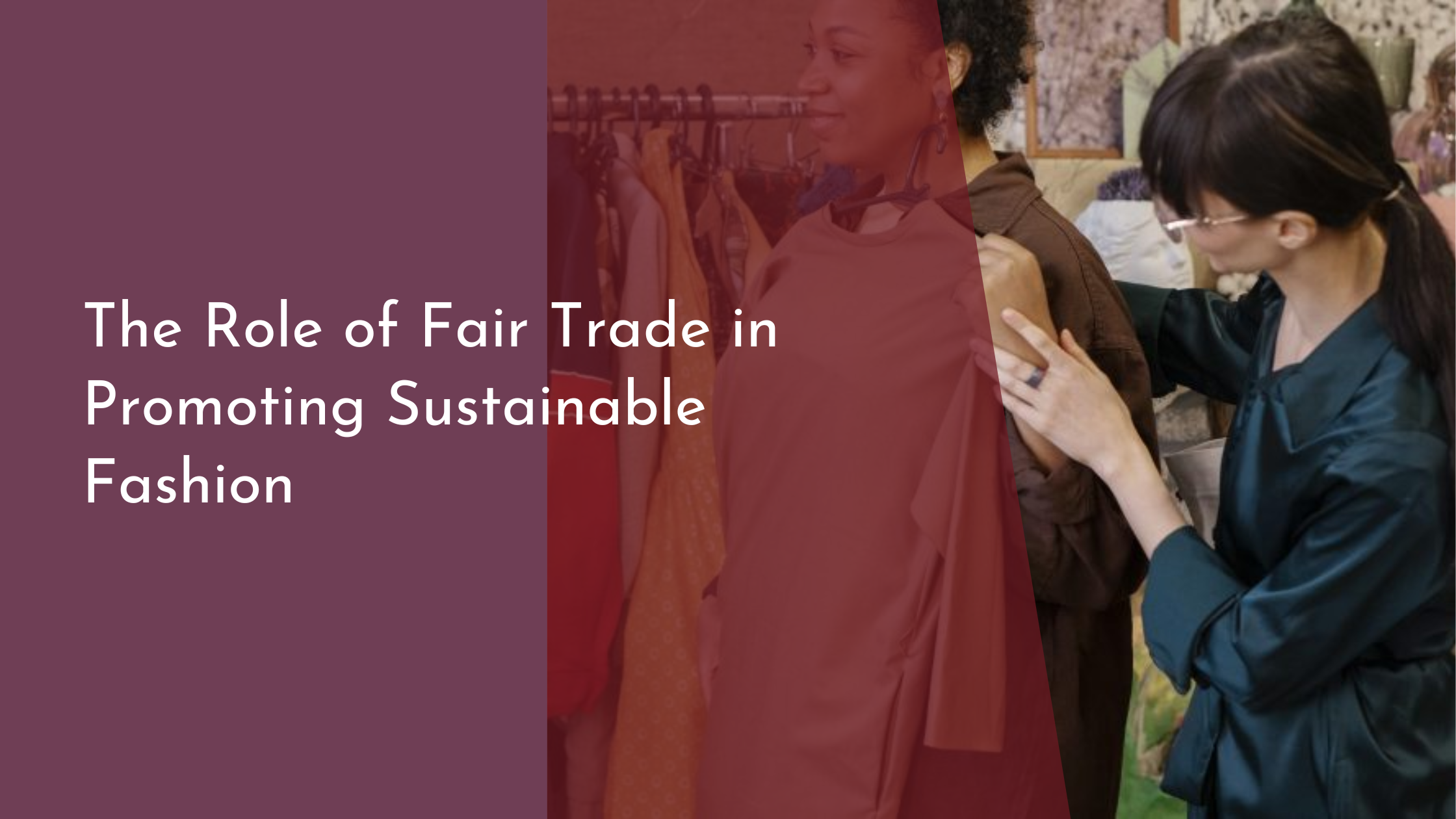The Role of Fair Trade in Promoting Sustainable Fashion
In recent years, the fashion industry has faced mounting pressure to adopt more sustainable and ethically sound practices. One of the most promising solutions to emerge is the concept of fair trade. Fair trade in fashion not only focuses on ensuring equitable treatment and fair wages for workers but also emphasizes sustainable production methods that are gentle on the environment. This article explores the pivotal role of fair trade in promoting sustainable fashion, highlighting its impact on sustainability efforts, and the benefits it offers to both consumers and producers.
Understanding Fair Trade in the Fashion Industry
Fair trade in the fashion industry is a movement that prioritizes ethical standards and sustainable practices throughout the entire production chain. At its core, it aims to provide better trading conditions and promote sustainability, especially for producers in developing countries. Fair trade certification ensures that workers receive fair wages, work under safe conditions, and have access to benefits that improve their quality of life. Additionally, it requires the use of environmentally friendly materials and processes, fostering a more sustainable approach to garment production.
The implementation of fair trade standards in fashion helps combat the exploitative practices often found in the industry, such as poor working conditions and inadequate compensation. By focusing on transparency and accountability, fair trade encourages brands to take responsibility for their supply chains. This ensures that every garment produced aligns with ethical norms, from the cotton fields to the final retail racks. By understanding and embracing fair trade, the fashion industry can take significant strides toward a more equitable and sustainable future.
How Fair Trade Drives Sustainability Efforts
Fair trade plays a crucial role in driving sustainability efforts by enforcing strict environmental criteria for production practices. These standards emphasize the use of organic materials, reduce the reliance on harmful chemicals, and encourage waste reduction in all stages of production. This shift not only lessens the environmental footprint of fashion items but also encourages consumers to make informed choices that support the planet. By adhering to these principles, fashion brands can significantly mitigate the industry’s overall environmental impact.
Moreover, fair trade initiatives advocate for long-term partnerships between brands and producers, fostering a collaborative approach to sustainability. These partnerships enable the sharing of knowledge and resources, which can lead to innovative solutions for sustainable production. By investing in the communities that produce their goods, fashion brands can help build resilient economies that prioritize environmental stewardship. Fair trade, therefore, acts as a catalyst, encouraging both producers and consumers to adopt practices that are environmentally responsible and economically viable for the long term.
Benefits of Fair Trade for Consumers and Producers
For consumers, fair trade fashion offers the opportunity to make purchases that align with their ethical and environmental values. By choosing fair trade-certified products, consumers can feel confident that their purchases support fair wages, humane working conditions, and sustainable practices. This not only enhances consumer satisfaction but also empowers individuals to contribute to a more equitable global economy. Additionally, fair trade fashion often features unique designs and high-quality materials, providing consumers with stylish options that have a positive impact on the world.
Producers, on the other hand, reap significant benefits from fair trade practices, including financial stability and improved living conditions. Fair trade ensures that producers receive a fair price for their goods, which directly contributes to better livelihoods and stronger communities. Access to fair trade markets also encourages producers to invest in sustainable practices, as they gain financial incentives for meeting environmental and ethical standards. This virtuous cycle supports the growth of sustainable businesses that prioritize people and the planet, creating a win-win scenario for all parties involved.
Concluding Thoughts on Fair Trade and Fashion Sustainability
As awareness about the environmental and social impacts of fashion grows, fair trade presents a compelling case for a more ethical and sustainable industry. By championing fair wages, safe working conditions, and environmentally friendly practices, fair trade sets a benchmark for responsible fashion production. It challenges brands to go beyond profit-centric models and engage in practices that benefit both people and the planet. As more consumers and brands embrace fair trade, the fashion industry can transition towards a future where sustainability is no longer an option but a standard.
In conclusion, fair trade is a cornerstone in the journey toward sustainable fashion. It represents a holistic approach that considers the well-being of workers, communities, and the environment. By supporting fair trade fashion, consumers and brands alike can drive positive change in an industry that has long been associated with exploitation and environmental degradation. As the movement gains momentum, it holds the promise of transforming the fashion landscape into one that is not only stylish but also ethical and sustainable.

